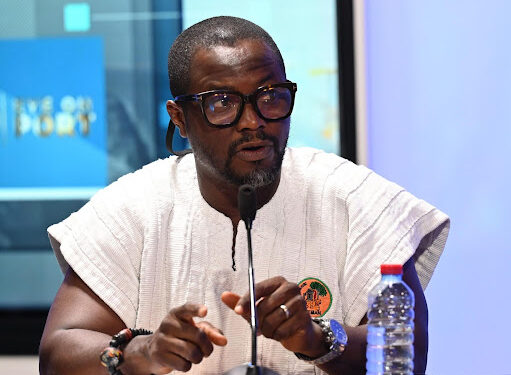Clearing Agents in Ghana wary of existential threats
“We are not being selfish. We are just worried that where a lot of revenue is made, you want to open it up to locals and foreigners and you can’t track them?”
- Advertisement -
Some activities of Shipping lines operating in Ghana remain the subject of backlash in Ghana’s ports and logistics sector. Clearing agents operating at the various ports are calling on government to exert some authority over the lines in order to protect the businesses of citizens.
Recently, the Presidents of two of Ghana’s freight forwarding associations: Association of Customs House Agents, Ghana (ACHAG) and the Customs Brokers Association of Ghana (CUBAG), intimated that when some of these seemingly harmless activities are left unchecked, they could morph into existential threats to the local industry.
- Advertisement -
Mr. Yaw Kyei (ACHAG) and Nana Fredua Agyemang Ofori-Atta (CUBAG) registered their displeasure on the Eye on Port TV program.
- Advertisement -
They alleged that some shipping lines, in attempts to vertically integrate and take control of the entire supply chain, have somehow managed to engage in customs house brokerage which is supposed to be a preserve of locals.
“They want to pick the goods, load on board vessels, bring to port of discharge, clear them and deliver to customers’ destination – this so called end to end service is an existential threat and in an industry that employs thousands, if government will sit aloof and let this thing go that way, it doesn’t bode well for anybody,” Mr. Ofori Atta lamented.
“When shipments get to Tema here, they have a funny way of registering a local company with the participation of a local person and they will continue the processing in their names,” Mr. Kyei added.
The CUBAG President also called for government to compel the lines to apply the Bank of Ghana published exchange rates for the purposes of paying for shipping fees.
“The shipping lines charge exchange rates that are way above the nominal rates the Bank of Ghana published for us every Tuesday. For a private person importing to sell, when astronomical rates are slapped on them, they have no choice, but to pay. But you know what? They will pass on the additional cost to the final consumer. One of the reasons prices keep going up – it is not helping our inflation,” he bemoaned.
“We met at the Presidential Summit and the governor of the Bank of Ghana says these are private companies, and they don’t regulate them and the rates published are just nominal. When you hear such things you realize you’re on your own” Mr. Ofori-Atta revealed.
- Advertisement -
He said the notion that these are private businesses in competition and importers are under no obligation to use them, is untenable and traders more or less do not have a choice but to use them for imports.
Nana Fredua, who is also the Secretary of the Committee of Freight Forwarding Associations said with a business that thrives on predictability, the unregulated application of exchange rates is serving a hard blow to customers who are already reeling under the general economic pressures.
He called for the legislation that backs the mandate of the Ghana Shippers Authority to be reviewed and strengthened to enable the authority regulate the industry.
One major existential threat pointed out by the experienced freight forwarding professionals was the so-called self-declaration policy that was proposed by government in 2023.
They contend that more harm than good will result from allowing untrained and unlicensed importers to do customs business and clear goods on their own. They said their contention goes beyond saving their jobs.
The President of ACHAG, Mr. Yaw Kyei explained that in addition to ordinary importers lacking the technical know-how to execute customs clearance procedures, opening up customs clearance to all could raise issues related to national security.
“We are not being selfish. We are just worried that where a lot of revenue is made, you want to open it up to locals and foreigners and you can’t track them?” he quizzed rhetorically.
They urged government to take a second look at this policy, and stick with the status quo of the careful selection of qualified professionals to carry out customs business which involves the collection of valuable government revenue.
- Advertisement -


